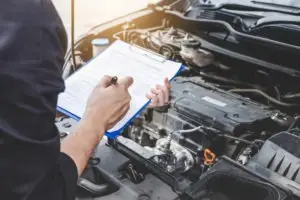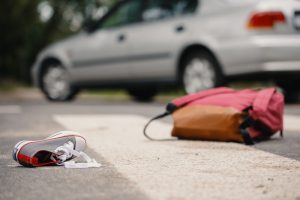
Although being a safe driver is key to helping avoid a serious accident, your car can play an important role in your safety as well.
Driving a vehicle that is poorly maintained can have a negative impact on a person’s commute.
You may breakdown, lose control of the vehicle or even cause an accident.
Fortunately, with a little preparation, you and your vehicle can keep safe on your next commute.
- Start with a checkup on your vehicle: This includes checking the ignition, wiring, hoses, fan belts and your battery.
- Top fluids and replace filters: According to the NHTSA, you should check the levels of your car’s fluids, including engine oil, power steering and transmission fluids and windshield washer fluid. If any of them are low, top them off before hitting the road. If your car is close to needing its next oil change, you should have it done before your trip. Also check to see if the engine air filter, which collects dust and debris, needs replaced.
- Check your brakes and tires: If your brakes are squeaking or making any noise, have them inspected and changed before hitting the road. Make sure your tires have enough air and the tread is in good shape.
- Keep an emergency kit in your vehicle: You should keep a few necessary items in your vehicle in the event of an emergency. This should include a spare tire, jumper cables, tool kit, first aid kit, flares, a compass, non-perishable foods and a working flashlight with extra batteries.
To further help avoid an accident or injury, always monitor the weather before heading out. Check local cable channels, radio, newspapers and websites to better prepare for the commute ahead.
In the months ahead, winter weather will be coming. Snow, sleet and freezing temperatures can be a dangerous combination when it comes to driving.
Fortunately, with a little preparation, you and your vehicle can keep safe on roadways this winter.
- Have your car serviced for winter conditions: This may include switching to winter tires and winter window wipers.
- Keep Fluids Full: When temperatures are very low, it can cause fuel lines and wiper fluid lines to freeze. You should always keep both your fuel and wiper fluid more than halfway full in the winter to hopefully avoid these issues.
- Remember car doors can freeze: Cold weather can freeze doors and windows shut. Warm water will help unfreeze them; however, you may not have access to it. Buy a tube of glycerin at your local hardware store. You can use this for de-icing. It is important to keep this outside of your vehicle though. Keep it in a purse or work bag so you can use the glycerin to de-ice your doors.
- Practice safe driving: If you find yourself on icy roadways, the most important thing to do is slow down. Hitting the brakes hard is normally your first reaction: however, doing so will often lock up your brakes causing your vehicle to slide on the ice. Because sliding is common on icy roads, so are multi-vehicle pile ups. If you are involved in an accident, stay in the vehicle and keep your seat belt on until help arrives.
No matter the time of year, make sure you give yourself plenty of time to get to your destination and avoid all distractions while on the road.
Recovering Compensation after an Accident
If you or a loved one were injured in an accident, contact the law firm of Berger and Green to review your claim. You may be entitled to compensation. Call 412-661-1400 to schedule a free consultation with a personal injury lawyer in Pittsburgh at Berger and Green today.










